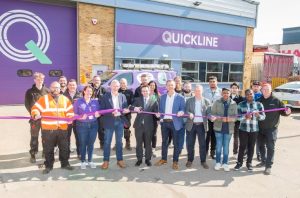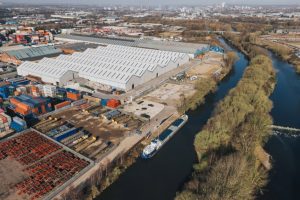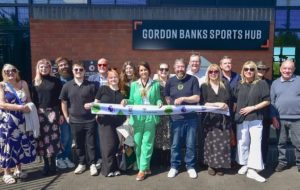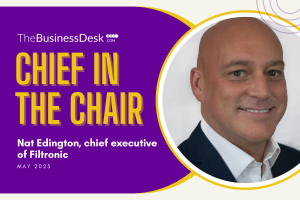Morrisons’ problems require a "turnaround, not a few tweaks"

MORRISONS chairman Andrew Higginson is no stranger to the pressures of competition in the supermarket sector, although at one time his problems were caused by a perceived lack of competition rather than having too much of it.
“I remember when we were at Tesco. We had three Competition Commission enquiries in the 15 years I was there, which is quite a lot,” he said.
“One of our strongest arguments was always that Tesco is a big business but if we didn’t do a good job for our customers, they would just go somewhere else five minutes down the road and find someone else who would do that job for them – and we were right, they have.
“It’s slightly cold comfort now to know you were right with the benefit of hindsight.”
One of Mr Higginson’s first jobs when he stepped up to become chairman of the Bradford-headquartered supermarket group in January was to remove its chief executive Dalton Philips, on the back of declining sales and share price.
He is clear what his job, and that of an overhauled board and management team, is in the years ahead.
“The objective is to turn the business around and I think it’s important to stress it is a turnaround,” he said. “This is not a question of tweaking a few things and getting back on track.”
Morrisons’ market share is hovering around its lowest point since it completed the integration of Safeway supermarkets a decade ago while the deflationary pressures in the sector have combined to create extremely tough conditions for a business which its chairman acknowledges had lost touch with its customers.
“If sales are an indication of that, then we have,” he said. “We are just about to complete our fourth year of like-for-like declining sales.
“Over those four years our like-for-like sales – that’s sales from the same space – are down 14%.
“Numbers don’t really lie. If you look at that, it is a worrying sign that we have lost touch with our customers.”
Morrisons’ struggles have resulted in some “painful” decisions. Mr Higginson, who was guest speaker at Bradford Chamber of Commerce’s annual dinner, said: “We are now trying to move to reshape and refocus the business. It’s quite a painful process.
“80% of the stores we have opened since 2009 we have had to impair the value of. Now we don’t really have permission from our shareholders to open stores, even if we wanted to.
“We had the painful decision to make to cut the head office. We have had to right-size the office – to use that terrible jargon – and 720 jobs have gone out of 3,000 people at head office and we know how painful that has been.
“It’s a very significant number and if you go round the offices you will see large swathes of empty desks and it affects the mood and the culture of the business but it’s something we had to do.”
Adding in people working in its stores and manufacturing facility, the business still has around 5,000 of its 120,000 people working in Bradford, where it was founded in the final year of the 19th century.
There are plenty of challenges ahead – getting back into convenience after its sale of 130 stores, which were each losing £300,000 a year; improving its online offering, which is geographically limited because of its partner Ocado; dealing with the impact of the national minimum wage at a time when deflation is affecting revenues; and responding to the so-far unrelenting rise of the discounters led by Aldi and Lidl.
Despite those pressures, there are hard numbers that back up the anecdotal evidence that Morrisons has already undergone quite a transformation.
Mr Higginson said: “We are reducing our bank debt quite considerably. Today was the first time we fell below £2bn of debt in the last four years”, before adding, slightly tongue-in-cheek, “it’s a good day”.
Sectors
Comments
If you'd like to leave a comment, please register now for free or login








